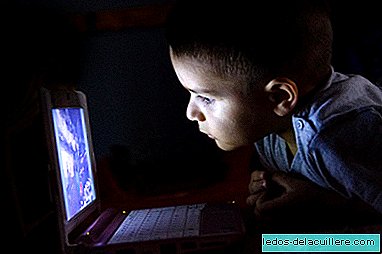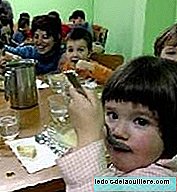Innocence en dànger is a non-governmental organization based in Switzerland, which brings together local movements in France, Germany, Morocco, Lebanon, Colombia and the United States. It is formed by activists for children's rights who are professionals in law, technology, politics, communication, and intend to create (or increase) international awareness on crimes related to child pornography, and in general sexual abuse of minors.
They are developing a campaign to educate parents and children about the dangers of the Internet, taking into account the high numbers of children surfing the Internet without supervision (In many cases parents are not even at home, in many others they are in other rooms while the child is locked in his room with his computer, tablet or smartphone). On the Internet, not everyone is who they say they are, but how to teach children to avoid risks? Christine Kjamila Allaf (secretary of Innocence in Dàncer) reports that of every five children who move on the Internet, one has received proposals of a sexual nature on the Internet (data worldwide).
There are adults who they pretend to be children to approach minors; Cyber crimes of this nature are not always committed by adults, but the point is that we must wake up from this kind of lethargy in which we are (forgive the generalization), because without the guidance of responsible adults, children easily move from be digital natives to be 'digital orphans'.
A survey developed by Symantec Harris in 2008, produced worrying data, including that 20 percent of children offer information (when they are online) that their parents would not approve
Campaign images are based on graphic elements that represent adults become the three most used emoticons in messaging, discussion forums and social media chats. The emoticons serve to know the mood of the person with whom we communicate, or to express ideas that with words and in this context would be difficult to convey. They are friendly but do not always coincide with the real intention of the message sender.
I recognize that they are shocking and striking, there are those who criticize them for lack of aesthetic taste, but here what counts is the impact received, because it tries to protect children from unexpected consequences that can go from annoying to tragic (depending on the type of risk and the initial reaction of the child). Whether or not we like the representative elements of the campaign, we have no choice but to accept that it is much worse for a child to be extorted by a groomer.
I have read in the press kit of Innocence in Dànger, which according to Interpol, 55 percent of child pornography is generated in Europe
In this post about sexual predators, we commented that there is no specific profile by which to identify these criminals. But it is that in addition to approaching their victims (after having tracked the network) to gain confidence from them, children are exposed when they offer unnecessary information on Social Networks, when they upload images indiscriminately, when they open emails from senders not identified, when they accept friend requests without thinking, when they access links (banners) while playing online, etc.
I believe that it is time to train to educate (as Pere and Oliver said in this interview), making family communication and common sense our main asset in risk prevention on the Internet.











